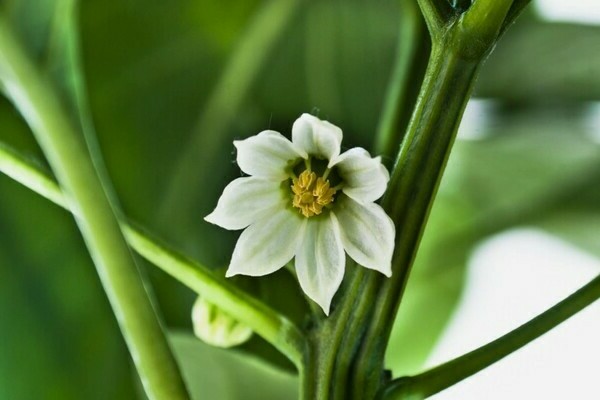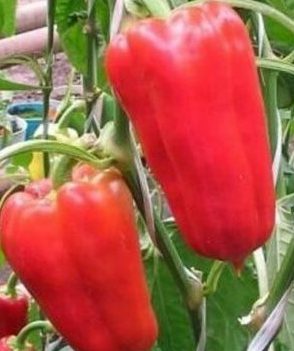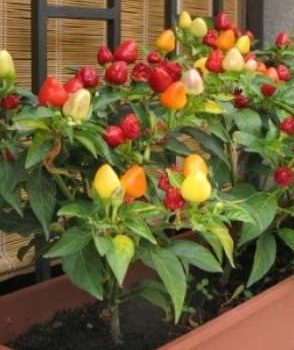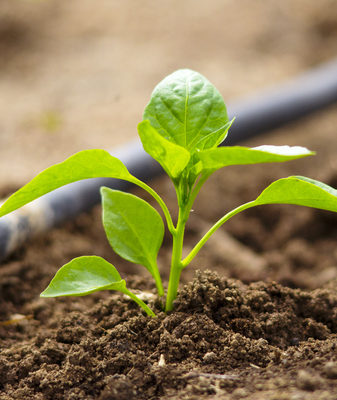Why do pepper flowers fall
Content:
Pepper flowers fall: why? The main reasons

Pepper flowers: photo
Lighting problem
Pepper is a plant that loves light very much. There are many reasons why pepper flowers turn yellow and fall off. He needs the sun's rays, like we need water, during the period of seedlings and until the end of plant growth. If sunlight is not enough during the ripening period, then in the future this affects the growth and development of plant and reproductive functions, and then on the fruits themselves.
This is the first reason for the fall of flowers and leaves in peppers.
Watering problem as the reason why pepper flowers fall
Liquid is another reason why pepper flowers drop. Pepper needs it during the period of kiophoria. At this time, the pepper needs water, but it treats the excess very badly. If there is little water, then the ovaries, buds, and thus the yield falls in quantity. If there is a lot of water, then there is a lack of air in the soil, the root system is experiencing a lack of oxygen. As a result, there is a slowdown in growth and a decrease in the number of fruits.
The problem with the percentage of humidity
Air humidity also plays a huge role. The optimum moisture content for pepper is 60-70%. Moisture can cause problems with the ovaries. If the humidity is low, you can spray water in the greenhouse, or water the strips of soil between the peppers nearby. If the humidity is high, the greenhouse should be ventilated.
The problem is in the soil mix
Pepper is very picky about the ground. The soil should contain humus, nitrogen, phosphorus, potassium. But everything should be in moderation. Nitrogen promotes the growth of stems and leaves, if you overdo it with it, it will be to the detriment of the fruit. Phosphorus promotes the growth of ovaries and fruits. Potassium helps plant health, cold resistance and fruit development.
Pepper leaves and flowers fall due to weather conditions
Pepper flowers can fall off for another reason. If the weather is bad, then there are not enough pollinating insects. Under these conditions, I usually do artificial pollination by shaking the plants before lunch.
Pepper flowers fall: what to do if the ovaries do not hold?
Flowers and leaves of pepper fall and turn yellow: what to do?
Defective buds in a plant are usually formed on poor soil. They soon fall off. Pepper is very fond of the soil rich in humus and other beneficial properties that are easily available for nutrition. It is recommended to feed the pepper once or twice a week throughout the season, mainly with mineral and organic dressings. Also, pepper must be fed with nitrogenous elements.
If nitrogenous substances are not enough, then the culture will slow down in its growth and development. And if there is too much of it, then the plant will grow its foliage, from which the fruits may suffer. Pepper also needs phosphorite elements, they are responsible for the development of the root system, ovaries and harvest. Potassium substances are also very necessary, because they increase resistance to cold weather, and also help in stimulating fruit ripening.
To prepare a mineral fertilizer, it is required: in ten liters of water, dilute fifteen to twenty grams of ammonium nitrate, or urea, forty to fifty grams of concentrated phosphorus fertilizer, twenty to thirty grams of potassium sulfate. Use this concentration in a one-to-one ratio with liquid.
After a couple of weeks, I advise you to fertilize the pepper with an organic solution: slurry (one in eight) and bird droppings (one in fifteen).
Alternate these feedings at intervals of ten to fifteen days.During the fruiting period, I also advise you to fertilize with superphosphate infusion (forty grams per ten liters). You can also fertilize with a solution of calcium nitrate with a concentration of one to two tenths of a percent, an interval of one week. Replace saltpeter it is possible with a mixture of chalk (for one liter, one or two tablespoons of chalk). A solution of potassium chloride with a concentration of three to four tenths of a percent is also a good substitute for nitrate.
Conclusion
It is important to monitor the soil, while introducing bait, fertilizers, monitor humidity and sunlight. If all this is observed, then the harvest will be rich, and the dropping of flowers in the pepper will be avoided.




